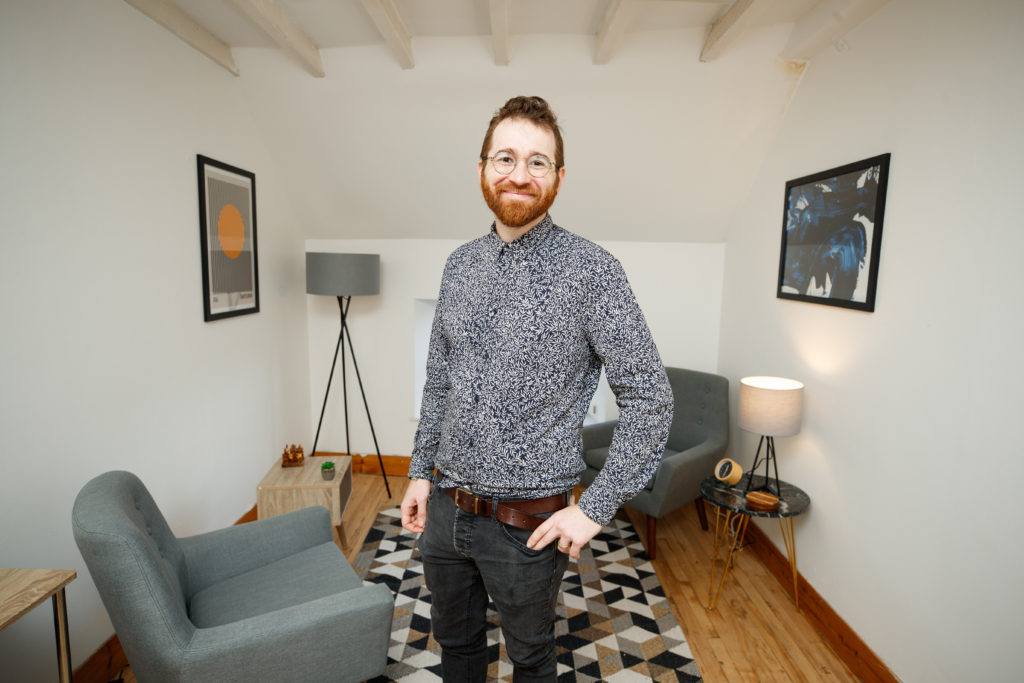How I Work
As I explain on the What is Psychotherapy? page, one’s experience of psychotherapy can vary a lot depending on who they are, the context they are receiving therapy, and the approach of their therapist. This page is designed to make clear how I work, and give you a sense of what you might expect if you were to undertake psychotherapy with me.

I practice in the dialogue between two different approaches: Psychodynamic and Person-centred therapy. Both of these approaches are dialogical, meaning that therapy would take the form of a one-to-one meeting with no specifically set task or activity besides being in eachother’s presence, and a presumption of some sort of communication happens between us. Integral to both approaches is a confidential, empathic meeting, where I would do my best to provide a supportive environment for you to discuss and work through your situation without judgement.
While these approaches have different focuses and foundational theories, both are non-directive approaches. This means that I, as your therapist, will not be determining the agenda of the sessions, instructing you on a course of action to take in regard to your situation, or assigning you emotional ‘homework’ to work through between sessions. Instead, the content of our work will be focused on the experiences, ideas, and conflicts you wish to bring to your therapy to explore and work on collaboratively. A metaphor I often use when beginning with clients is that therapy is a psychological roadtrip: You are in the driver’s seat, deciding where we go, and I would be in the passenger seat beside you, commenting on what I see during the drive.
In terms of a contract, work with me typically takes the form of weekly sessions that last an hour (60 minutes) in duration, which are ideally scheduled for the same time and place each week. Rather than establishing fixed contracts of duration, most of my work is open-ended, meaning our work together would continue until you felt you had done the work you needed to in therapy, or an ending was otherwise negotiated due to external circumstances. My standard rate is £65 per session. Negotiation and flexibility are important in the contracting process, so while this is the standard arrangement I would suggest, I am not opposed to altering this arrangement based on a client’s needs. For example, it may be possible to offer sessions on a fortnightly basis in some circumstances. I also offer some sessions at a reduced sliding scale rate (i.e. the cost of a session would be relative to your income, rather than a fixed price point) as part of my commitment to making psychotherapy accessible, but be aware that these slots are limited, and may take significant time to become available.
Currently I offer two main services: face-to-face and remote therapy. Face-to-face therapy is exactly what you might expect – us meeting in the same room and engaging with the therapeutic process in eachother’s physical presence. The availability of face-to-face work will be subject to COVID-19 restrictions in Scotland, but my doors are open to face-to-face clients so long as Edinburgh is at Level 2 or lower restrictions. All measures necessary to reduce risk (including hand sanitising stations, social distancing and open ventilation) have been put in place to ensure the safety of clients while coming to the office. Alternatively, remote therapy is easily arranged in cases where coming to the office may be difficult, unsafe, or where a client may have accessibility concerns. Remote therapy would take place either on a telephone call or over a video calling service, depending on the client’s preference. While these interventions have the same underpinnings theoretically and research has shown remote therapy is just as efficacious as face-to-face work, the remote format comes with specific conditions that might need to be negotiated slightly differently from a face-to-face contract.

All therapeutic work I do is bound by a strict confidentiality agreement. While there are some exceptions to confidentiality that would necessitate breaking it (generally surrounding your safety, or my legal obligations as a therapist) these would be discussed in further detail in your initial consultation. It is incredibly rare that a confidentiality agreement needs to be broken, but in any case where it was necessary, I would try my utmost to do so with your awareness and consent. I am a registered practitioner member of COSCA (membership no. 4111), and abide by the ethical frameworks put forth by both COSCA and BACP.
It is important to note that while psychotherapy is an inherently intimate and relational intervention, there will be clear boundaries in place with our work – most particularly that our relationship exists in therapy, and not outside of it. For example, there would usually be no contact between client and therapist another outside of a session aside, unless contact is necessitated for administrative purposes. Psychotherapy also has limitations as an intervention; it is important that our work together is not regarded as a ‘crisis intervention’, and you should not expect to be able to reach me outside of our scheduled appointments. That said, if you feel having this type of contact would be important for you to undertake psychotherapy, I can refer you to a number of on-call and crisis resources to support you, such as practical assistance and hotlines, if you feel you should need them.
If this psychotherapeutic arrangement seems to you like one that might facilitate the personal work that brings you to therapy, you can book a cost and commitment-free initial consultation with me to make sure we would be a good fit to work together. Just fill out the form on the Booking an Appointment page, and I will be in touch with you in the next 48 hours.
Consultancy Services
In addition to psychotherapy, I also provide other professional services to organisations and individuals. Using my clinical, academic, and research expertise, I can assist you to meet the multi-faceted and complex demands of your professional institution. Whether you need to support the mental health needs of your employees or colleagues, to arrange continuing professional development opportunities for your clinical team, or to commission targeted, effective qualitative research to inform your next business decision, I’m here to help.
Details of how these services are costed or can be best delivered vary widely based on the type of project you are looking for help with, and what type of consultant you would like to contract me as. The best way to find out more is for us to have a dialogue where I can learn the details of your organisational needs which I will then use to develop a clear service delivery plan, including rates or estimates for the service. If you are interested in exploring what work we could do together, feel free to find out more information about how to get in contact with directly using the details located on the Contact Information page.